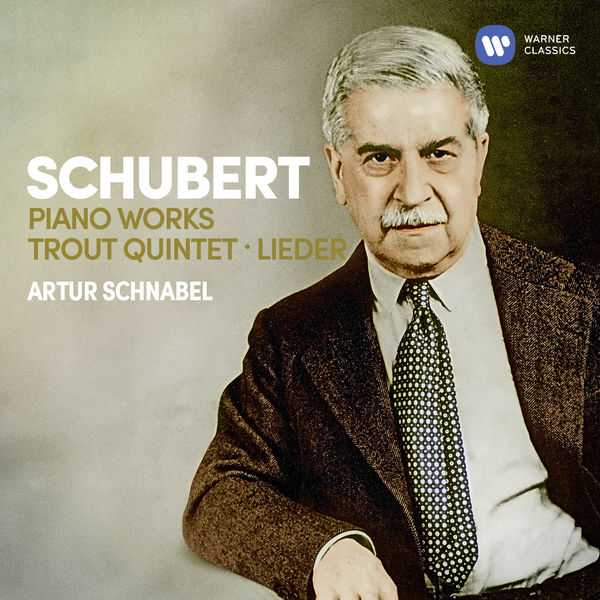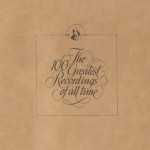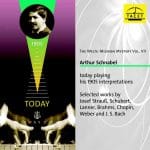

Composer: Franz Peter Schubert
Performer: Artur Schnabel, Karl Ulrich Schnabel, Pro Arte Quartet, Therese Behr-Schnabel
Format: FLAC (tracks)
Label: Warner
Catalogue: 9029563376
Release: 2018
Size: 4.65 GB
Recovery: +3%
Scan: cover
4 Impromptus, D899 (Op. 90)
01. No. 1, in C Minor
02. No. 2, in E-Flat Major
03. No. 3, in G-Flat Major
04. No. 4, in A-Flat Major
4 Impromptus, D935
05. No. 1, in F Minor
06. No. 2, in A-Flat Major
07. No. 3, in B-Flat Major
08. No. 4, in F Minor
09. Allegretto in C minor, D915
10. March in E major, D606
Moments Musicaux, D780, Op. 94
11. No. 1, in C Major
12. No. 2, in A-Flat Major
13. No. 3, in F Minor
14. No. 4, in C-Sharp Minor
15. No. 5, in F Minor
16. No. 6, in A-Flat Major
Piano Sonata No. 17 in D major, D850
17. I. Allegro vivace
18. II. Con moto
19. III. Scherzo. Allegro vivace
20. IV. Rondo. Allegro moderato
Piano Sonata No. 20 in A major, D959
21. I. Allegro
22. II. Andantino
23. III. Scherzo. Allegro vivace
24. IV. Rondo. Allegretto
Piano Sonata No. 21 in B flat major, D960
25. I. Molto moderato
26. II. Andante sostenuto
27. III. (Scherzo) Allegro vivace con delicatezza
28. IV. Allegro ma non troppo
29. Divertissement sur des motifs originaux français, D. 823: II. Andantino varié in B Minor
30. Allegro in A minor ‘Lebensstürme’, D947
Six Grand Marches D819
31. No. 2, in G Major
32. No. 3, in B Minor
Marches Militaires, D733
33. No. 1, in D Major
34. No. 2, in G Major
35. No. 3, in E-Flat Major
Divertissement à la Hongroise D818
36. I. Andante
37. II. Marcia. Andante con moto
38. III. Allegretto
39. Rondo for piano duet in A major, D951
Piano Quintet in A major, D667 ‘The Trout’
40. I. Allegro vivace
41. II. Andante
42. III. Scherzo – Presto
43. IV. Thema mit Variationen – Andantino
44. V. Finale – Allegro giusto
Schwanengesang, D957
45. XIII. Der Doppelgänger
46. XI. Die Stadt
47. Gruppe aus dem Tartarus, second version, D583 (Schiller)
48. Der Kreuzzug D932 (Leitner)
49. An die Laute D905
50. Der Musensohn, D764 (Goethe)
51. Erlkönig, D328
Artur Schnabel, identified above all with the music of Beethoven, was also a supreme interpreter of Schubert. Initially trained in Vienna, he played a crucial role in advocating the Austrian composer’s piano music at a time when such masterworks as the late sonatas enjoyed surprisingly little currency. By the time he started making these recordings, in the early 1930s, Schnabel was already a mature artist, and their essential lyricism is complemented by his characteristic rhythmic vitality and intellectual rigour. Newly remastered from original sources, these historic interpretations now benefit from audio quality of unprecedented truth and immediacy.



